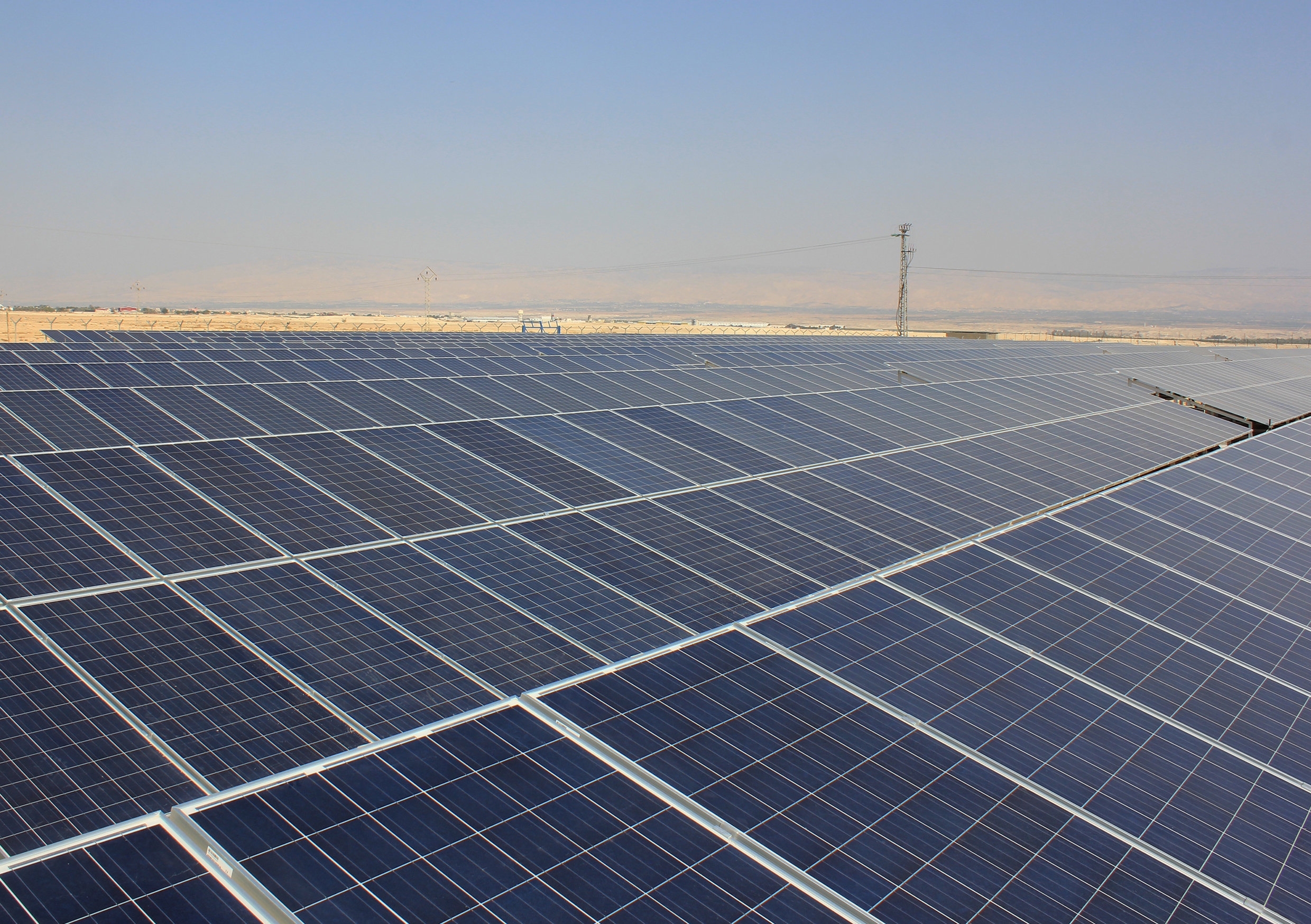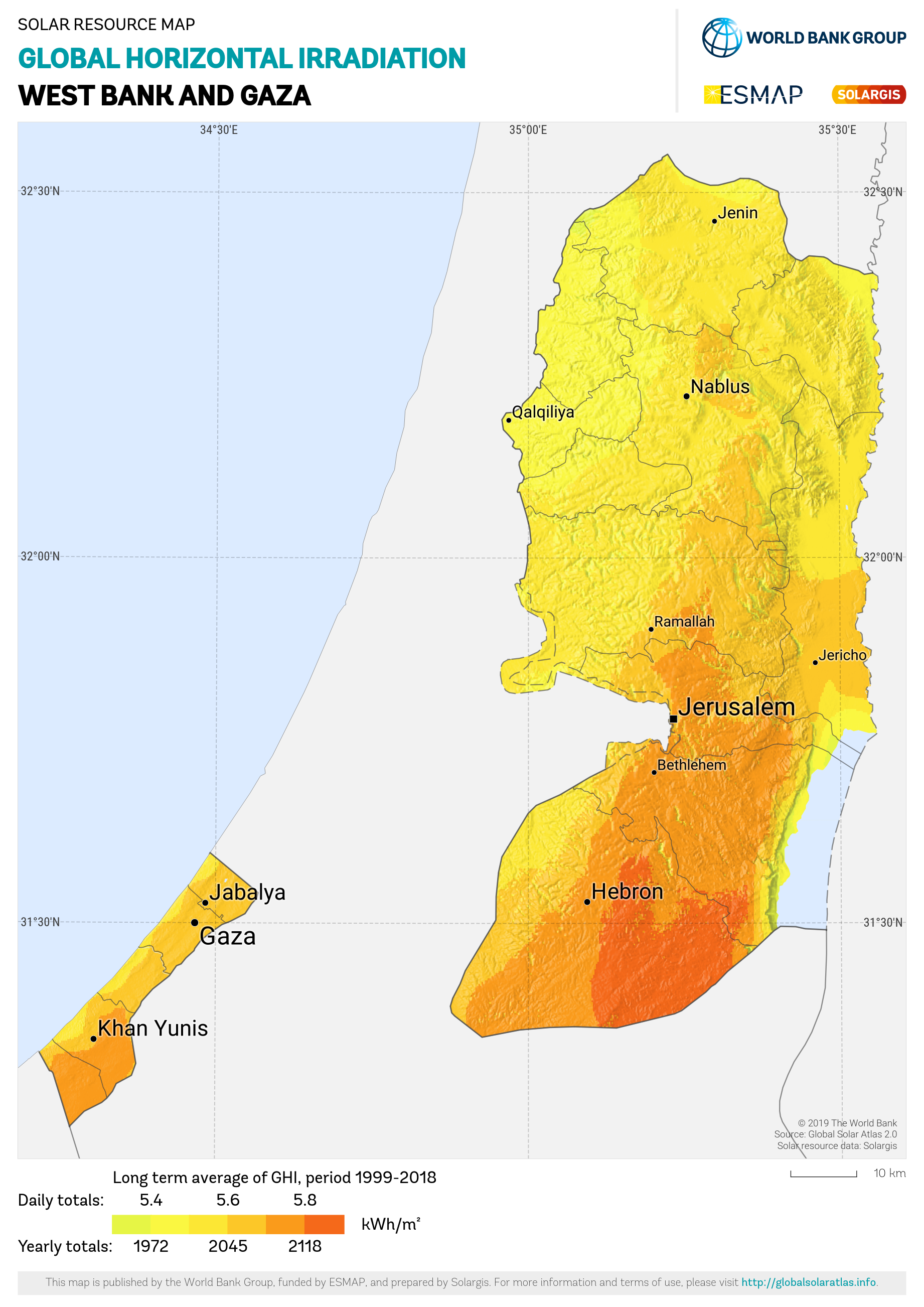Renewable energy in Palestine on:
[Wikipedia]
[Google]
[Amazon]
 Renewable energy in
Renewable energy in
 It has been estimated that solar sources have the potential to account for 13% of energy usage in the Palestinian Territories. Over half of all households in Palestine utilise solar energy heaters, although only 3% of houses depend on it as their main source. A 710kw
It has been estimated that solar sources have the potential to account for 13% of energy usage in the Palestinian Territories. Over half of all households in Palestine utilise solar energy heaters, although only 3% of houses depend on it as their main source. A 710kw
 Renewable energy in
Renewable energy in Palestine
__NOTOC__
Palestine may refer to:
* State of Palestine, a state in Western Asia
* Palestine (region), a geographic region in Western Asia
* Palestinian territories, territories occupied by Israel since 1967, namely the West Bank (including East ...
is a small but significant component of the national energy mix, accounting for 1.4% of energy produced in 2012. Palestine has some of the highest rate of solar water heating
Solar water heating (SWH) is heating water by sunlight, using a solar thermal collector. A variety of configurations are available at varying cost to provide solutions in different climates and latitudes. SWHs are widely used for residential an ...
in the region, and there are a number of solar power projects. A number of issues confront renewable energy development; a lack of national infrastructure and the limited regulatory framework of the Oslo Accords
The Oslo Accords are a pair of agreements between Israel and the Palestine Liberation Organization (PLO): the Oslo I Accord, signed in Washington, D.C., in 1993;
are both barriers to investment.
Solar power
 It has been estimated that solar sources have the potential to account for 13% of energy usage in the Palestinian Territories. Over half of all households in Palestine utilise solar energy heaters, although only 3% of houses depend on it as their main source. A 710kw
It has been estimated that solar sources have the potential to account for 13% of energy usage in the Palestinian Territories. Over half of all households in Palestine utilise solar energy heaters, although only 3% of houses depend on it as their main source. A 710kw photovoltaic
Photovoltaics (PV) is the conversion of light into electricity using semiconducting materials that exhibit the photovoltaic effect, a phenomenon studied in physics, photochemistry, and electrochemistry. The photovoltaic effect is commercially us ...
plant was commissioned in September, 2014 in the vicinity of Jericho
Jericho ( ; ar, أريحا ; he, יְרִיחוֹ ) is a Palestinian city in the West Bank. It is located in the Jordan Valley, with the Jordan River to the east and Jerusalem to the west. It is the administrative seat of the Jericho Gove ...
; it is the largest plant in Palestine to date. Research has indicated that, although a very high percentage of Palestinian houses are connected to the central grid, powering remote villages with small-scale photovoltaic systems would be more economically feasible than extending the grid.
Israeli authorities seized a solar/diesel hybrid electric system from the Palestinian village of Jubbet ad-Dib
Jubbet ad-Dib ( ar, جبة الذيب, also spelled Jubbet adh-Dhib) is a small Palestinian village in the central West Bank, part of the Bethlehem Governorate. It is located about 6.5 kilometers southeast of Bethlehem and is just east of the P ...
in July, 2017. The system was funded by the Dutch government and installed by joint Israeli-Palestinian organisation Comet-ME, leading the Dutch Foreign Ministry to lodge a complaint. The Coordinator of Government Activities in the Territories told reporters that the solar panels were erected “without the necessary permits, and that stop work orders had previously been sent to the village authorities,” although a Haaretz report indicated that the confiscation orders were only delivered during the raid, meaning there was no chance to contest them in court. Residents of the village, located in Area C between a number of Israeli settlements, had been attempting to implement and gain approval for solar power projects since 2009.
Wind power
It has been estimated that wind energy has the potential to account for 6.6% of energy usage in the Palestinian Territories.Biomass
About half of the Palestinian population - mainly in the rural areas, refugee camps, and Bedouins of North and South Governorates - are exposed daily to harmful emissions and other health risks frombiomass
Biomass is plant-based material used as a fuel for heat or electricity production. It can be in the form of wood, wood residues, energy crops, agricultural residues, and waste from industry, farms, and households. Some people use the terms bi ...
burning that typically takes place in traditional stoves without adequate ventilation. The majority of individuals exposed to enhanced concentrations of pollutants are women and young children.
National policy
The Palestinian Energy Authority (PEA) published a 'General Renewable Energy Strategy' in 2012, aiming for 10% of total domestic energy production and 5% of total energy consumption to come from renewable sources by 2020.Barriers
There are a number of barriers to development of renewable energy resources in Palestine, including regulatory issues resulting from theIsraeli occupation
Israeli-occupied territories are the lands that were captured and occupied by Israel during the Six-Day War of 1967. While the term is currently applied to the Palestinian territories and the Golan Heights, it has also been used to refer to a ...
, and this meant the government was unable to achieve its target of 25 megawatts by 2015. However, renewable energy has a large potential to reduce reliance on imported energy and address a number of social issues.
References
External links
{{Renewable energy by country